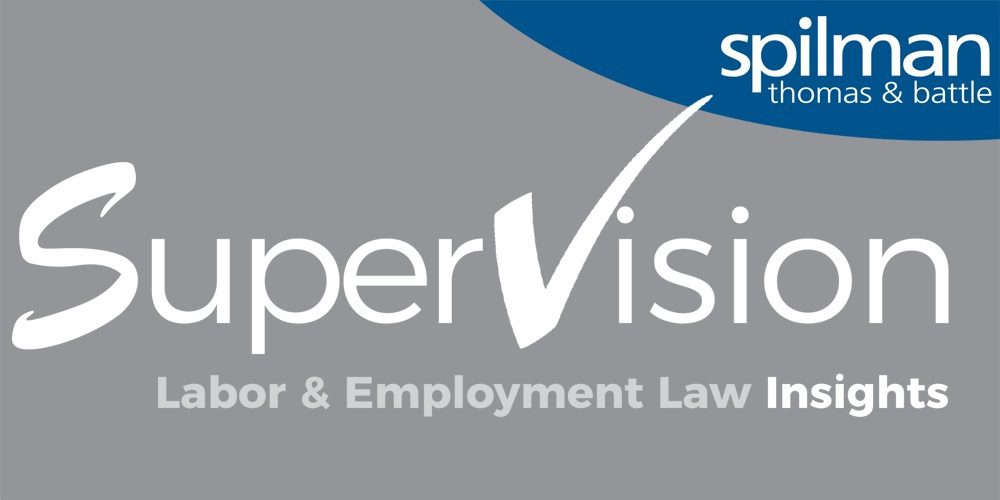Article
Resources
Article
Suspected Abuse of FMLA Leave: What Can be Done?

The Family Medical Leave Act (the “FMLA”) entitles eligible employees of covered employers to take 12 (and in some cases related to military service, 26) weeks of unpaid, job-protected leave for specified family and medical reasons in a 12-month period. FMLA is intended to allow employees to care for sick family members, undergo and recover from surgery, obtain medical treatment, or spend time following the birth or adoption of a child. For many employers, however, managing FMLA leave and ensuring that employees are taking leave for legitimate reasons can pose challenges. This article explores the tools available to employers to manage FMLA leave and provides practical steps employers can take to combat abuse.
1. The Medical Certification
The FMLA allows employers to require an employee to provide a medical certification issued by a healthcare provider supporting the need for leave. When issuing a medical certification, the employer must allow the employee at least 15 calendar days to obtain the medical certification. When completed properly, the medical certification form provides employers with information about the condition or reason for leave and the expected duration of leave. A medical certification contains information that is useful for all cases of FMLA leave, but it is particularly helpful for employees who are on intermittent leave as a properly completed certification should inform the employer of the cadence and frequency of the leave.
It is crucial that the employer carefully reviews the certification to ensure it is complete and the employer fully understands the leave the employee will be taking. If the employer finds the medical certification is insufficient, the employer must notify the employee of the deficiency and allow the employee a reasonable opportunity to cure the deficiency. More specifically, the employer must state in writing what additional information is necessary to make the certification complete and must allow the employee at least seven calendar days to cure the deficiency.
While the FMLA permits the employer to contact the employee’s health care provider in order to authenticate (ensure the forms have been legitimately completed) or clarify the medical certification provided, we recommend caution in those communications. Before the employer makes a communication directly to the healthcare provider, it is a best practice to obtain the employee’s written authorization allowing the healthcare provider to disclose such information to the employer. The FMLA does not require an employee to sign a release or waiver as part of the medical certification process and the decision to provide such authorization is at the employee’s discretion; however, the employee must provide the employer with a complete and sufficient medical certification or an authorization allowing the healthcare provider to provide a complete and sufficient certification to the employer. If the employee fails to do so, the employee’s request for FMLA leave may be denied.
Furthermore, any contact between the employer and the employee’s healthcare provider must comply with the Health Insurance Portability and Accountability Act (HIPAA). Moreover, such contact must be made through either a healthcare provider, a human resource professional, a leave administrator, or a management official. The employee’s direct supervisor is prohibited from contacting the employee’s healthcare provider. Finally, employers may not ask the healthcare provider for general information about the employee’s healthcare condition and may not request any information beyond that contained in the medical certification form.
2. Additional Medical Opinions & Recertification
If, upon receipt of the completed medical authorization, the employer still has reason to doubt the validity of the medical certification, an employer may require a second or third medical opinion. Such second or third medical opinions must be paid for by the employer. These would be used if the employer has concerns over the legitimacy of the need for leave.
Additionally, the FMLA regulations allow the employer to ask for recertification of the need for medical leave no more often than every 30 days in connection with an absence by the employee unless the condition is expected to last more than 30 days. In all cases, including those where the condition may be indefinite, the employer may request a recertification for absences every six months. Employers often use this recertification process as a means of confirming the ongoing validity of an employee’s FMLA leave request.
3. Accurate Documentation
In addition to utilizing the FMLA forms provided by the Department of Labor (e.g., the medical certification forms), it is important to keep accurate records of an employee’s FMLA leave. Only leave taken for an FMLA-qualifying reason is protected by the FMLA. Thus, when an employee misses work for some other reason, it is only governed by the employer’s normal policies and procedures. Ensuring employees provide accurate information – and the employer properly documents – the dates and reasons for employee absences allow the employer to assess whether there is a pattern to FMLA abuse and/or whether the leave being taken is consistent with the cadence of the leave set forth in the medical certification.
4. Surveillance
If an employer suspects FMLA abuse after following the processes provided under the FMLA for certifying and recertifying an employee’s need for FMLA leave, some employers question whether it is legal to initiate surveillance on the employee for purposes of proving the suspected FMLA abuse. While nothing under the FMLA specifically bars an employer from initiating surveillance, the FMLA does prohibit employers from interfering with, restraining, or denying the exercise of FMLA rights. As such, employers should be cognizant of these restrictions before deciding to surveil an employee as it is likely that the employee will argue that any surveillance that is conducted was retaliatory in nature or done as a means of dissuading the employee from utilizing his/her legitimate right to take leave.
While courts have upheld the general right of employers to institute surveillance based on suspected FMLA abuse, these rulings make clear that the employer MUST have a reasonable basis to suspect that the employee is abusing FMLA leave and that the employer is justified in initiating surveillance. For instance, reliable reports from co-workers, suspicious timing of leave, and the employee claiming inconsistent reasons for leave may serve as a reasonably objective basis for conducting surveillance. See e.g., Vanhook v. Cooper Health Systems, 2022 WL 990220 (3rd Cir. 2022) (employer had reasonable suspicion where employee frequently took leave in conjunction with weekend or other day when using non-FMLA leave and coworker reported that employee used FMLA for reasons that were different than those provided to the employer); Avent v. Kraft Foods Global, Inc., 2012 WL 3555378 (E.D. Va. 2012) (surveillance of an employee does not amount to a violation of the FMLA when the employer has reason to suspect abuse of FMLA leave).
Additionally, if an employer plans to use surveillance in cases involving suspected FMLA leave abuse, the employer must put its employees on notice that surveillance may be used for that purpose. Courts have held that secret surveillance of employees might dissuade a reasonable employee from exercising his/her rights. See e.g., Kaczmarek v. County of Lackawanna Transit System, 2017 WL 5499160 (M.D. Pa. 2017); Mendez v. Starwood Hotels & Resorts Worldwide, Inc., 746 F.Supp.2d 575 (S.D. NY 2010). As such, employers should provide employees with notice that surveillance may be used for suspected FMLA leave abuse through their FMLA policy. This notice can be provided via a handbook policy. Additionally, to the extent that surveillance is used by an employer, the timing and amount of surveillance should be reasonable and done in a professional manner so that the employee cannot argue that he/she felt stalked or intimidated by the surveillance.
Remedial Steps
If an employer determines that an employee is abusing FMLA leave, it can take disciplinary action. At the same time, employers should exercise caution when FMLA abuse is suspected since, as noted above, retaliation for taking FMLA is prohibited. Further, while this article focuses on FMLA leave, employers must remember that other laws (like the Americans with Disabilities Act or other state law) may also provide protections to employees that are layered on top of FMLA protections. Due to the complexity of these issues, we recommend that you consult your legal counsel to navigate FMLA leave and abuse concerns.


